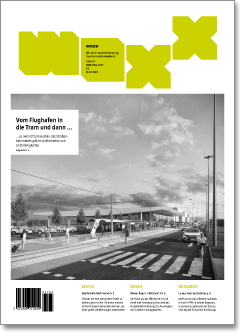Poet Pierre Joris is a member of the movement “Writers Against Trump”. Authors worldwide fight against the re-election of US president Donald Trump. Here’s Joris on rhetoric, a sleepless night and courage.

Poet Pierre Joris fights against the re-election of US president Donald Trump. Copyright: Nicole Peyrafitte
woxx: “Writers against Trump” is a movement of authors who fight together against the re-election of US president Donald Trump. Pierre Joris, you were born in Luxembourg and currently live in New York. Why did you sign the manifesto?
Pierre Joris: I left Luxembourg at 19 to study in Paris. From there I moved to the US, to the UK, to Algeria and back to the US where I live since 1987, though I visit Luxembourg at least once a year. I hold double nationality and New York is my hometown. Two of the founding members, Carolyn Forché and Paul Auster, asked us, me and Nicole Peyrafitte (Joris’s partner, editor’s note), to join shortly after WAT had been set up, and it was the most obvious thing to do. We both immediately created little videos for the Statement section.
I am in the dangerous age bracket for Covid and can’t go out to man voting stations or perform door-to-door canvassing, so being active in the “Writers against Trump” community and speaking about it beyond the United States is certainly part of what I can do to alert people to our predicament.
Why is it important that writers raise their voices regarding the US election?
The job of writers is to think in language. They therefore have to be very conscious and knowledgeable about language and its uses, and, as we say in our manifesto, “writers are well-positioned to advocate for our democracy. We understand the strength of words, of rhetoric”. This means that it is not our job to just reproduce, journalistically — though that is obviously another major job too —, the facts as they happen, but to investigate their connections to the past, think through their effects on the future, and speak to these. But time is of the essence: Right now, a few days before the election, we are also simply citizens who realize that the American democratic experiment is in grave danger of coming to an end if we cannot get rid of the current regime — especially as the elections are rigged against actual democratic representation. Therefore as an organization of writers right now our focus is to collaborate with organizations and groups working at registering new and especially young voters, promoting candidates at the local and national levels that will resist Trumpian totalitarianism and, as our manifesto says, “protect the election from fraud and theft, and mobilize in the event of post-election trouble”. Because unhappily the only conclusion one can draw from listening to Trump and his minions, such as Attorney General William Barr, is that any election result that does not make Trump the winner will be considered fraudulent and illegal by the government in power. So there could be major trouble after the election and we have to be ready to fight back, with our pens and with our bodies in the street. Writers have always been involved in this fight, have always given us the ability to think through tough situations: when a few months back attention became focused again on the repeated killings of young black people, I, for example, started to reread James Baldwin’s essays, as they clearly help one understand how systemic racism pervades this culture. And Hannah Arendt’s analysis of the roots and rise of totalitarianism in Europe, or Timothy Snyder’s 2017 “Against Tyranny” — these are essential texts for today. Baldwin may have put it best in a 1984 interview with the “New York Times Book Review” when he said that as a writer what you do is “not designed to make you special or even isolate you … What your role was, it seemed to me, was to bear witness. To what life is — does — and to speak for people who cannot speak. That you are simply a kind of conduit … […] to make it real. To force it on the world’s attention”. As Eddie S. Glaude Jr. wrote in his new book on Baldwin, “Begin Again”, that in order to counter what he calls “the lie” (namely the idea that systemic racism in the US does not exist or has been abolished by various improved laws and the fact that a black president had been elected) it is the writer’s job to “shatter the illusion of innocence at every turn and attack all those shibboleths the country holds sacred”.
How would you describe the relationship between authors, intellectuals, artists and repressive regimes in general and over time?
The same mixed bag as everything else. Writers, intellectuals, artists can be found throughout history on both sides: Those who for their own ideological or career reason back whatever regime is helpful to them, and those whose moral compass demands of them to be part of the resistance against repressive regimes. As the poet Robert Kelly reminded me last week, Virgil wrote the “Aeneid” to flatter the emperor Augustus, who exiled Ovid more likely for political reasons — maiestas laesa — than for his erotic poetry. Two of the great writers of the last century both had clear fascistic and anti-semitic tendencies: Ezra Pound and Louis-Ferdinand Céline. Just as I don’t see any changes (certainly no improvements, though maybe, given our culture of mass consumption, some deterioration) in humans as such, I don’t see any changes among those categories. Now, in times of great danger, maybe a few more come out vocally and actively on the side of justice. (“No Justice, no Peace” has been one essential formulation of our demands here in the US.) And those are the times we live in now. But again, writers know about words — and know that words can kill. As Victor Klemperer wrote about the Third Reich: “Nazism permeated the flesh and blood of the German people through single words, idioms, and sentence structures which were imposed on them in a million repetitions and taken on board mechanically and unconsciously.” Now add TV, the internet, Twitter, Facebook, Instagram and so on to pre-war radio and newspapers and you see how massive those repetitions have become. Writing and art have always been about creating ways of exploring the complexities (always in the plural) of our world. In that sense the current situation — not only here, worldwide too — demands attention and work from writers and artists to help us understand and maybe glimpse some possible solutions. It’s not a single problem that needs to be solved here in the US, even if the first one is the most urgent one: the possible end of democracy because of Trump is directly linked to the oldest American crisis, namely the systemic racism that has shaped this country for centuries as what can only be called a slave state and culture, as well as to the newest one, the global climate disaster, which risks doing us all in over the next decades. A reimagining of the place of humankind-in-the-world is needed. Writers and artists have a responsibility to contribute to this — and we hope that we can do that where we are, say, me here in New York, rather than have to repair to some Ovidian exile — where would our Constanta/Tomis or our Black Sea be?
“We have a strong sense that we risk a truly authoritarian takeover if we cannot get rid of Trump this November.”
The Swiss newspaper “Neue Zürcher Zeitung” criticizes the tone used by the movement as too aggressive. In a text you replied that there is „no time left for stylistic niceties“. Can you explain how the movement’s rhetoric relates to the urgency of a political change in the US?
The NZZ is a Swiss paper. Switzerland’s core ideological stance for centuries now has been neutrality. It may have worked well for them, but at this point here in the US a neutral tone of voice is a dereliction of duty. If you look carefully at the “Writers against Trump” site you will see that the stance of the opening statement is strong both in writing and in videos, but that the statements are simultaneously quite nuanced. But I have a sense that it is not just Switzerland that is to blame. As I also write in that text, we still have a sense that Europeans — and they should know better, given their 20th-century disasters — somehow think of Trump as a silly joke that will go away either this November or at worst in just four years. That’s complacency or wishful thinking. We have a strong sense that we risk a truly authoritarian takeover if we cannot get rid of Trump this November.
The NZZ draws a parallel between the authors’ manifesto and the current president’s rhetoric.
We need to speak both loudly and with nuance to indicate both the urgency and the complexity of the situation. The one whose tone is monotonously aggressive and hysterical is Trump. Worse: Trump only tells lies. 200.000 people are dead from Covid — Trump said it would go away by magic, no problem. Anarchy, riots, murder run rampant in the American cities run by Democratic administrations, he claims. The truth is many young black Americans killed by the police. And so on and so forth. So to compare our “rhetoric” with that of a pathological narcissist and criminal authoritarian with Hitlerian dreams is completely insane. On top of which, as Siri Hustvedt, one of the founding members of “Writers against Trump,” recently said on LitHub: “Civility and so-called objectivity is no way to contain a plague of lies.”

Bildquelle: Writers against Trump
Shortly after you sent me your answers to this interview, the Associate Justice of the Supreme Court of the United States, Ruth Bader Ginsburg, died. How did this make you feel?
The announcement of the death of Supreme Court Justice Ruth Bader Ginsburg is weighing heavily on us all. A president lasts four, at most eight years (unless like the present one he attempts to take over and stay for life, like his friends Putin or Kim Jong-un). Supreme Court Justices are nominated for life — they can be in place for 30 or even 40 years and longer. Senate majority leader Mitch McConnell robbed (illegally) President Obama of a nomination, allowing Trump to nominate two judges, both from the deep conservative right, both youngish men. Going against the declared policy with which McConnell refused Obama’s nominee, he announced an hour after Ginsburg’s death that he would give Trump one more judge. This will tilt the court to the deep right for the lifetime of my children — and the first thing you will see gone is legislation for women’s rights such as the right to abortion. As well as any possible legal protection of voters’ rights and against Republican gerrymandering. I could not sleep this night and so kept on reading in Glaude’s book on Jimmy Baldwin, and the title — “Begin Again” — kept running like a mantra through my head, yes, that’s the job, to begin again and again and not lose heart. Next to me Nicole continued reading in John Meacham’s impressive book “His Truth Is Marching On: John Lewis and the Power of Hope”. And then I got up at 5 a.m. to add this to the interview I thought I had finished yesterday: the urgency, the urgency — it is now only a few weeks, mere days, before the most important election in this country since its birth.
The political commitment of authors is different depending on where they come from, wouldn’t you agree?
I can’t really say. I think this depends very much on the urgency of the situation in any given country at any given time. Traditionally European writers have more and better access to mainstream media, especially daily newspapers and magazines, but also radio and television. Look, I’m being interviewed by a Luxembourg newspaper right now, Paul Auster talked to French radio, the German media has also spoken about what we do, as has the already mentioned NZZ. Here in the US writers, even well-known writers, do not have such easy access. That is why our work has to be more hands-on, locally organizing as I mentioned above and details of which activities can be found on our website.
We have talked a lot about the role of authors in the political debate − but does Trump’s regime affect your creative work as well?
Of course. It makes me waste vast amounts of precious time that could be better spent reading, writing and thinking. In synergy with the Covid crisis, it is also an anxiety generator and thus demands vast amounts of energy and careful management thereof. At the same time it makes me focus on essentials, and hopefully sharpens mind and pen, or to say it with Ruth Bader Ginsburg: “Don’t be distracted by emotions like anger, envy, resentment. These just zap energy and waste time.“
The German and short version of this interview has been published in the print-woxx 1599 on the September 25th, 2020.




